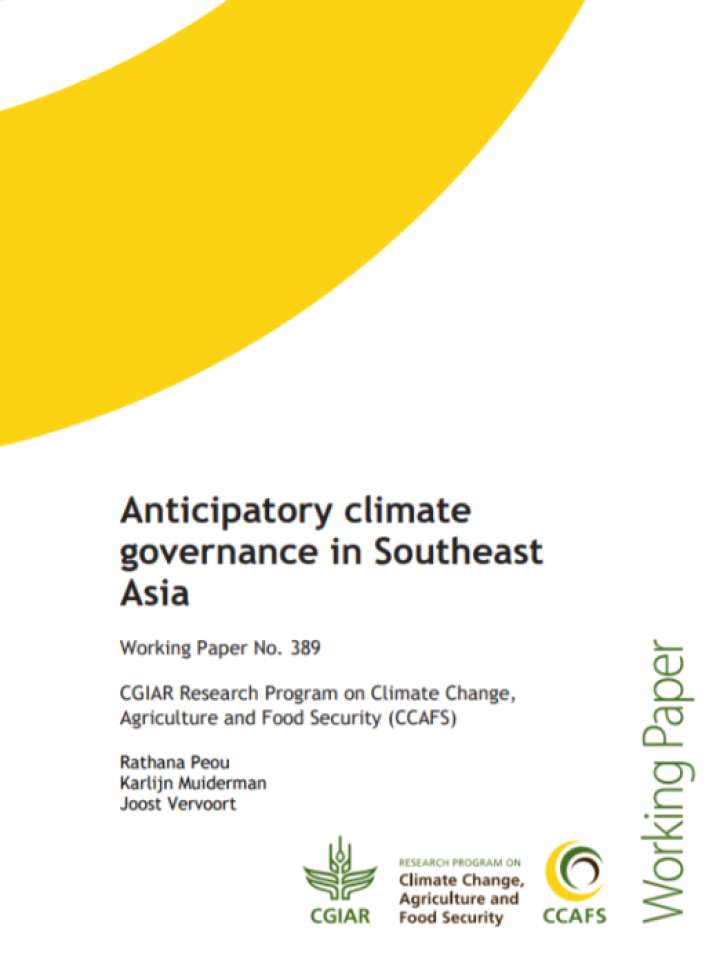Anticipatory climate governance in Southeast Asia
This report examines processes of anticipation in Southeast Asia by analyzing what methods and tools are used to anticipate climate futures and their role in climate policy and decision-making. Despite being most vulnerable to climate change, research into anticipatory climate governance processes in the Global South remains very limited. To understand how diverse processes of anticipation are used to govern climate change in diverse Southeast Asian contexts, this report looks into three case studies to understand their approaches to anticipatory governance. Additionally, it presents the results of two regional meetings with stakeholders where the researchers discuss the challenges that exist in each country to practice anticipatory climate governance and the opportunities to strengthen capacities in this field.
The report recommends a list of priorities actions based on the analysis to support practitioners and decision-makers. Firstly, that all countries should strive towards progressive sustainability transformations to meet Paris Agreement targets, that anticipation methods and tools provide opportunities for visualizing and understanding long-term climate impacts and that different methods and tools can be used in complementary ways. The report adds that testing policy against diverse plausible futures can help make plans more robust to various uncertain future developments but more futures work is needed that focuses specifically on making climate futures more socially inclusive. Also critical are approaches needed to think about the ways in which certain investments, groups and perspectives are prioritized while others might be left behind. Anticipation and foresight should thus be part of any regional and national planning process and to this end, capacities are needed at the regional and national level, as well as structural financial mechanisms.
Explore further
